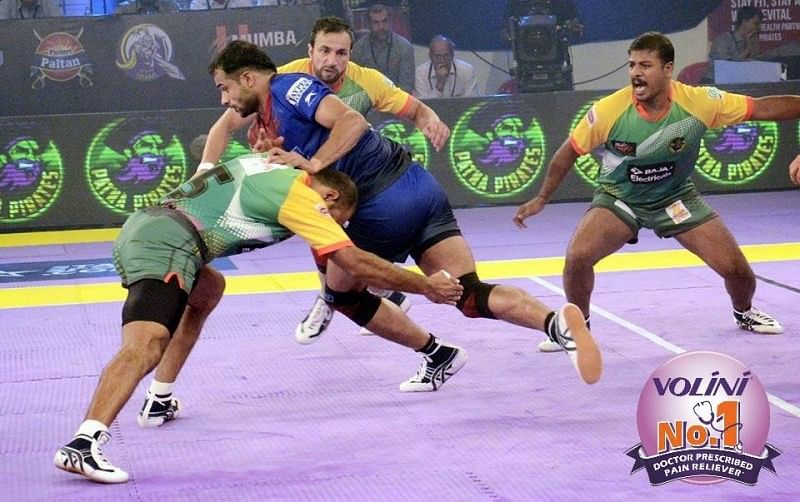
Kabaddi injuries: Dealing with the all-important mental side

Raju has been involved in kabaddi longer than he can remember. He has grown, and so have his strength, stamina, endurance and technique. He has been the one his team has always depended upon in crucial times. He has the passion to perform and compete. He just loves the sport; kabaddi is his identity.
One day, after a big match, he felt some pain and tenderness in his shoulder. A visit to the doctor confirmed his worst fears. His shoulder was really bad and he would have to be out of action for the next two to three months!
No one likes to think about it, but injury is an unavoidable risk that comes with being an athlete. In a sport such as kabaddi, injuries may arise from various directions. Kabaddi is a high contact game involving kicking, stretching, twisting and several other harsh movements. External trauma from an opponent – whether accidental or premeditated – has a very high chance of causing injury.
A majority of players also deal with joint/ankle problems, ligament troubles and muscle pulls. Minor pains/niggles are often overlooked, and a few of them are dealt with by using the super-effective magic sprays like Volini.
Physical factors are obviously the primary cause of injury. However, psychological researchers have repeatedly shown that thoughts, perceptions, stress and other mental aspects of personality are linked to the incidence of injury and recovery from injury.
Coping with the stress of an injury requires not only physical but also psychological resilience. Most athletes after an injury manage to get 100% physically recovered, but still cannot perform the way they did pre-injury. That is because the psychological factors during recovery are not fully taken into account.
Hence, it is important to include psychological techniques along with physical treatment in any rehabilitation process, in order to help the athlete regroup mentally and emotionally.
Athletes react to injuries with a wide range of emotions which may include:
1.Decreased self-confidence, leading to decline in performance
2.Denial, anger, sadness and even depression
3.Sense of alienation and isolation
4.Anxiety and fear of re-injury
5. Frustration
Although these feelings are real, it is important to move beyond the negative thoughts and find positive strategies to cope with a setback. In many cases, handling an injury with the right attitude helps an athlete become more focused, flexible and resilient.
Here are the five most essential psychological strategies for recovery.
1. Accept your feelings and reality:
- Do not run away from your feelings and reality. ACCEPT THEM. Accept what has
- Remember, your emotions are an important part of the healing process.
- Asking ‘Why me?’ or focusing on the ‘could have been….’, ‘should have been….’, happened to you and accept how you are feeling about it. and ‘if only…’ will not solve your problem. This is your reality right now! Allow yourself to deal with what it is!
2. Learn about your injury and take active part in your healing:
- Learn as much as possible about the cause, treatment and prevention of the injury.
- Follow the doctor's advice as is. Do not cut corners and do not overdo anything.
- Visualizing your own body healing and seeing yourself back on the playing field will
3. Be patient and maintain a positive attitude:
- A positive attitude can speed up the healing process and lessen the emotional pain Not fully understanding an injury can cause fear or anxiety. make you feel better and help speed up the rehabilitation.that you have to go through. Conversely, when you have negative thoughts it slows down the recovery process.
- It is all up to you. Your attitude and outlook are absolutely everything.
- Remember, a little hurry in getting back into action might lead to another, more
4. Adjusting your goals:
- The first part of adjusting your goals is accepting where you are. If you have a serious injury which may cost you even more time.
- One important thing to do during this phase is to celebrate every single improvement;
- Setting new goals helps you focus on what is in your control. Each week you should injured, doing what you were capable of before is probably not a realistic aim at this time.
- Recognizing your progress helps build your confidence. set your goals, chart your progress, evaluate, and then set a new goal for the following week.
5. Seek out support:
With the right knowledge, support and patience, recovery from an injury can be achieved without turning your whole world upside down. By taking things slow, setting realistic goals and maintaining a positive, focused approach, most athletes can overcome minor injuries quickly and major injuries in reasonable time.
Make sure you see your doctor for a proper diagnosis and treatment plan for any injury, and a professional psychologist for a psychological recovery plan.
- Participate in team functions. Fight the urge to isolate yourself.
- You may feel worthless and different, but chances are that you're probably the ONLY
- The worst thing for you to do when you are in a vulnerable state (of mind) is to one on the team that has that opinion. separate yourself from your group.
With the right knowledge, support and patience, recovery from an injury can be achieved without turning your whole world upside down. By taking things slow, setting realistic goals, taking appropriate medication and maintaining a positive, focused approach, most athletes can overcome minor injuries quickly and major injuries in reasonable time.
Make sure you see your doctor for a proper diagnosis and treatment plan for any injury, and a professional psychologist for an emotional recovery plan. The physical and the psychological are two sides of the same coin, and to emerge from the pain of any injury, both have to be given equal importance.
(Written by Madhuli Kulkarni)